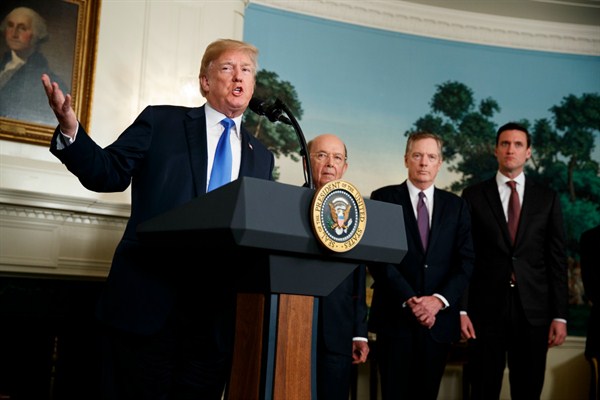For decades American presidents pursued multilateral trade agreements and supported international institutions that bolstered liberal trade policies around the world because they believed it was in the United States’ interest to do so. Yes, multilateral trade rules and institutions are relatively more beneficial for smaller, less powerful countries that cannot take on the United States or European Union on their own. And, yes, the rules under the World Trade Organization, or WTO, constrain the United States’ freedom of action, as did the predecessor arrangement, the General Agreement on Tariffs and Trade, or GATT. Yet U.S. presidents going back to Harry Truman believed that the benefits of the multilateral, rules-based trading system far outweighed the costs.
President Donald Trump, however, does not like constraints—and he does like trade wars. He has long railed against the WTO, wrongly claiming that the United States loses most of its cases and that the system is unfair. He has launched a variety of trade actions without regard to their legality under international rules. The online news site Axios reported that Trump has expressed a desire to withdraw from the WTO in numerous private meetings with advisers.
While the administration denied Trump was planning to withdraw, Axios released a copy of draft legislation that would, in essence, do just that. The Fair and Reciprocal Trade Act, aptly dubbed the FART Act by online pundits, would give the president authority to negotiate bilaterally and raise tariffs in violation of core WTO rules. The draft, which has not been introduced in Congress, has no chance of approval. But it is indicative of Trump’s attitude toward the organization.

